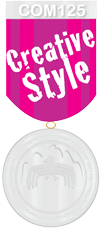QotW9: Citizen Journalism in Singapore

Some of us may have recalled watching The Arena (13th March 2007, 8pm on Ch5) when students debated on whether bloggers have become more influential than journalists. It is indeed a controversial issue as we have people who hate the idea of blogging and thus dislike people who do so, and others who embrace the latest hype over blogging. Citizen journalism, in most countries, has expanded greatly through the use of blogs.
What is Citizen Journalism?
Also known as “participatory journalism,” (“Citizen Journalism,” 2007) citizen journalism is the act of citizens “playing an active role in the process of collecting, reporting, analyzing and disseminating news and information” (Bowman & Willis, 2003). Essentially, it is not about what professional journalists are reporting to us in the news, but more of what we citizens view situations to be and what we believe. Thus, the term “we-media.” As Bowman and Willis (2003) have put it, “...journalism finds itself at a rare moment in history where, for the first time, its hegemony as gatekeeper of the news is threatened not just by new technology and competitors but, potentially, by the audience it serves.”
What is STOMP?

STOMP stands for Straits Times Online Mobile Print and was created by the Singapore Press Holdings. The website (http://www.stomp.com.sg/) allows citizens to engage in discussions on current affairs and interest topics through e-mailing them, or the use of mobile phones.
When you first load the STOMP webpage, you may be overwhelmed by the amount of pictures and some advertisements. Sure, it does catch one’s attention. A section called “Talkback” allows people to speak their minds and share their views/interests on any topic. Apart from that, STOMP has a “Court Room” page where information on court cases most talked about is posted. In addition, other sub-categories like “Singapore Seen,” “ST Foodies Club,” “Star Blog” and “Stink” add on to the features of this webpage. There are just so many things to be found on STOMP, you have to visit it to know what I mean.
The Question: Is STOMP an Ideal Form of Citizen Journalism for Singapore?
I would say that STOMP is indeed a form of citizen journalism for Singapore. Although Singapore may seem like an amateur to such a practice, the rate at which it is spreading throughout the country is rapid.
However, I would not claim that STOMP is an ideal form of citizen journalism for Singapore. A quick browse at STOMP would leave you with the impression that it is not a site that deals mainly with important current affairs but more of interesting, funny and light-hearted issues happening in the country. Sections that allow users to compete in talent contests and have ranking of most popular/talked about contest entries, plus STOMP eBay, give me the feeling that they are attempting to put too many things/features into one site. With a slight slip, STOMP might just fall into the category of a leisure website or a social networking site. Of course, for starters, STOMP has indeed succeeded in getting Singaporeans to actively participate in online discussions.
According to Dan Gillmor (2004), “As the pace of life has quickened, our collective attention span has shortened…The situation is made worse by the fact that most of us don’t stop long enough to consider what we’ve been told, much less seek out context, thereby allowing ourselves to be shallow and to be led by people who take advantage of it.”
How to Improve STOMP?

I think that to improve STOMP, features like STOMP eBay and MMSing Contests should be removed or placed on a separate domain. If the aim of STOMP is to encourage citizens to engage in discussions on current affairs and some other small talk, then these features are but a distraction that causes its users to stray from engaging in citizen journalism. Once again, this is only my opinion.
Also, since STOMP is a part of the Straits Times, people would be more cautious of what views and opinions they post. This is especially so for political issues. Users of STOMP should be taught to understand how to post opinions wisely and non-offensively while still maintaining their freedom of speech. This would then be a start to building a good foundation to encourage more citizen journalism here in Singapore. From gaining experience in STOMP, users may then branch out and set up their own blogs, thus engaging in citizen journalism.
In addition, it would be better if STOMP could cater to citizens of all ages rather than focus on attracting the younger crowd. All in all, we must remember that “A shallow citizenry can be turned into a dangerous mob more easily than an informed one” (Gillmor, 2004).
References:
Bowman, S. & Willis, C. (2003). We Media. Retrieved March 31, 2007, from http://www.hypergene.net/wemedia/download/we_media.pdf
Bowman, S. & Willis, C. (2005). Neiman Reports: The Future is Here, But Do News Media Companies See It? Retrieved March 31, 2007, from http://www.hypergene.net/blog/weblog.php?id=P327
Citizen Journalism. (2007). In: Wikipedia, the free encyclopedia. Retrieved March 31, 2007, from http://en.wikipedia.org/w/index.php?title=Citizen_journalism&diff=118429022&oldid=116903986
Gillmor, D. (2004). We the Media: Grassroots Journalism by the People, for the People. Retrieved March 30, 2007, from http://download.nowis.com/index.cfm?phile=WeTheMedia.html&tipe=text/html#chap1
Labels: Assignments










